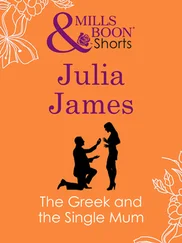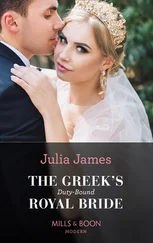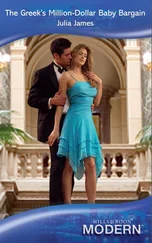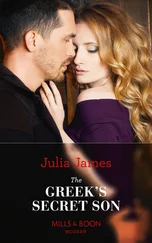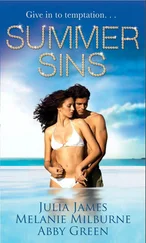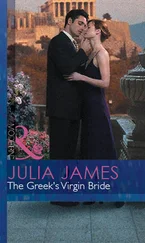Julia James - The Lady Most Willing
Здесь есть возможность читать онлайн «Julia James - The Lady Most Willing» весь текст электронной книги совершенно бесплатно (целиком полную версию без сокращений). В некоторых случаях можно слушать аудио, скачать через торрент в формате fb2 и присутствует краткое содержание. Жанр: Старинная литература, на английском языке. Описание произведения, (предисловие) а так же отзывы посетителей доступны на портале библиотеки ЛибКат.
- Название:The Lady Most Willing
- Автор:
- Жанр:
- Год:неизвестен
- ISBN:нет данных
- Рейтинг книги:4 / 5. Голосов: 1
-
Избранное:Добавить в избранное
- Отзывы:
-
Ваша оценка:
- 80
- 1
- 2
- 3
- 4
- 5
The Lady Most Willing: краткое содержание, описание и аннотация
Предлагаем к чтению аннотацию, описание, краткое содержание или предисловие (зависит от того, что написал сам автор книги «The Lady Most Willing»). Если вы не нашли необходимую информацию о книге — напишите в комментариях, мы постараемся отыскать её.
The Lady Most Willing — читать онлайн бесплатно полную книгу (весь текст) целиком
Ниже представлен текст книги, разбитый по страницам. Система сохранения места последней прочитанной страницы, позволяет с удобством читать онлайн бесплатно книгу «The Lady Most Willing», без необходимости каждый раз заново искать на чём Вы остановились. Поставьте закладку, и сможете в любой момент перейти на страницу, на которой закончили чтение.
Интервал:
Закладка:
“Nothing,” Fiona said, rather sadly. Her sister had tossed the portrait—painted by Sir Thomas Lawrence from an earlier likeness—to the side as if it had cost mere pennies. She could still picture her father’s crushed expression. “Pearls are old fashioned, Papa,” Marilla had snapped. “Don’t you know anything ? I swear I don’t belong in this mud hole. I belong in London.”
The earl tugged the lock of her hair that he held, rather as she had tugged Marilla’s that morning. “Lord Oak—”
He tugged harder.
“Byron,” she said, reluctantly. “This conversation isn’t at all proper. Not at all. I don’t wish to call you by your given name.”
“And why is that?”
“Because this is some strange fairy-tale moment, and tomorrow, or possibly the next day, the snow will stop and then the pass will open, and you will return to your life. And I will return to mine.”
“Will you come to London for the season this March?”
“No,” she said swiftly, knowing instantly that she would rather die than sit on the edge of a ballroom and watch the Earl of Oakley waltz with another woman as everyone attempted to decipher his haughty expression. “I didn’t like you very much when I saw you there.”
He nodded, seeming to understand. “You wouldn’t like me this time, either. But couldn’t we pretend that I’m someone different? Likable? After all, we’re buried.” He gestured toward the windows. They were encrusted with snow and ice.
“I’m not very imaginative,” she said apologetically. “All I can see is an earl who is well-known as a most punctilious man, but has apparently lost his head. It would be one thing if I were Marilla. But you’re not struck mad by my nonexistent beauty, so the only way I can explain your flirtation is to believe that you do so in order to avoid my sister. And that doesn’t make me feel very flattered.”
“Why couldn’t I be enthralled by your face? Because, as it happens, I am.” He reached over and poured more cider into both of their cups.
She frowned at him. “How strong is that cider?”
“You are very beautiful, in a quiet way. You’re like a flower that one sees only after wandering away from the coach into a field. And then, behind a rock, one finds a tiny blue flower, like a drop of the ocean in the midst of a brown field.”
“Goodness,” she said, startled by this flight of lyricism. “Perhaps you do have something in common with Lord Byron.”
“Absolutely not,” he said, his lip curling. “The man leads a licentious life and deserves every drop of notoriety he’s earned.”
“Reputation is tremendously important to you by all accounts.”
“An excellent character is a person’s greatest blessing,” he replied. It sounded as if he was repeating a sentence he’d heard many times.
“It’s far more complicated than that. The public nature of one’s character can differ from the nature of one’s intrinsic self,” she answered, feeling her heart ache. Surely she wasn’t falling in love with a man she hardly knew. Clearly, she was feeling too much . More than she’d allowed herself to feel in years, since the wrenching horrible days when she realized that her father didn’t, and never would, believe her about Dugald.
Byron stretched his feet out toward the fire. A log cracked in half and sent a shower of sparks like live bits of gold up the chimney.
“My father believed that nothing mattered except for one’s reputation,” he said, staring into his mug.
“He would have approved, then, of your broken betrothal?”
“Without question. Though I should say that, in point of fact, she broke the engagement after . . . after the incident.”
“Did you love her?” Speaking the words sent a little pulse of savage longing down her neck. Why would his fiancée kiss a dancing master when she could have kissed this complex, beautiful man? It was inconceivable.
“No,” he said morosely. “And obviously, she didn’t love me, either. But I didn’t ask for love.” His expression made it clear that was an important distinction. “I never asked for that.”
“You should have,” Fiona exclaimed, before she could catch herself.
He pushed to his feet and squatted before the fire, using the poker to move a half-burnt log closer to its heart. He moved with a powerful grace that belied his large physique. “I begin to share your opinion.”
She raised an eyebrow, but he didn’t look back at her. “Neither love nor affection is a prerequisite for marriage amongst the nobility,” he continued. “But faithfulness is. That’s what a woman’s reputation means: that she won’t sleep with another man, and leave a cuckoo to inherit one’s estate.”
“I think kindness is important,” Fiona said, thinking of Dugald and his lack thereof.
“Of course. Sanity is also a good attribute in a spouse.” Humor laced his words again, albeit humor with a dark edge.
“You’ve omitted physical attractiveness,” Fiona offered. “From what I’ve seen during the season, gentlemen find beauty tremendously important.”
He was placing another log on the fire, but he half turned in order to see her face. “Why do you single out my sex? Don’t ladies feel the same about their future husband’s appearance?”
She thought about it. Dugald hadn’t been handsome, not in the least. Of course she would have preferred a good-looking man, but when her father had presented her with the marriage, it never occurred to her to say no for that reason. “We generally don’t have the freedom to choose on that basis.”
He looked back at the fire. “The dancing master was going bald. That’s what I remember most: the way his head shone in the back.”
Without conscious volition, Fiona rose and walked a step to his side. But once there, she was at a loss. Obviously, he had cared about his faithless fiancée, no matter how much he protested to the contrary. She put a hand tentatively on his shoulder. Her velvet sleeve was a little too long; its folds fell over the arm of his coat. “I’m sorry,” she said.
He got to his feet. “I didn’t care about her overmuch.” Perhaps he was telling the truth, but she knew instinctively that he would never admit it if Lady Opal had broken his heart.
Byron was a stubborn, stubborn man. That square chin conveyed a level of obstinate, masculine strength that a woman could lean against—and battle—for the whole of her life.
Fiona found herself smiling at him as if he were a true friend, as if genuine affection flowed between them. Somehow, beyond all reason, she felt as if she had just become friends with a pompous, irascible turnip of an English lord.
From the look in his eyes, he had come to the same realization at the same moment.
Then his eyes fell to her lips. She licked them nervously. “Of course,” she said, her voice coming out in a breathy tone that reminded her uncomfortably of Marilla, “of course you didn’t love her!” Somehow she managed to give the sentence a perky tone that was utterly inappropriate.
His eyebrow shot up. He was mocking her, and yet . . . yet there was sensual promise there as well.
“No,” she whispered.
He didn’t answer, at least not directly. Instead, he reached over and pulled one of her hairpins and, before she could stop him, another. Without pins to hold it up, her heavy hair tumbled down over her shoulders.
Byron made a sound in the back of his throat that sounded like a hum.
“What are you doing?” Fiona said, stepping back and frowning. Her spectacles had slid down her nose; she pushed them back up. “I have already informed you that I am not an appropriate person with whom to conduct a flirtation, Lord Oakley.”
Читать дальшеИнтервал:
Закладка:
Похожие книги на «The Lady Most Willing»
Представляем Вашему вниманию похожие книги на «The Lady Most Willing» списком для выбора. Мы отобрали схожую по названию и смыслу литературу в надежде предоставить читателям больше вариантов отыскать новые, интересные, ещё непрочитанные произведения.
Обсуждение, отзывы о книге «The Lady Most Willing» и просто собственные мнения читателей. Оставьте ваши комментарии, напишите, что Вы думаете о произведении, его смысле или главных героях. Укажите что конкретно понравилось, а что нет, и почему Вы так считаете.

